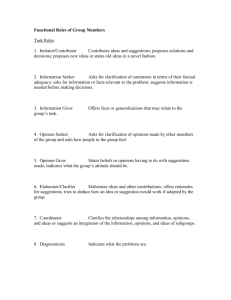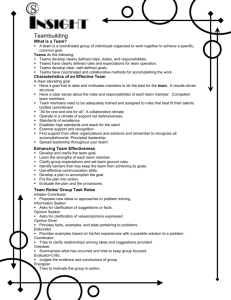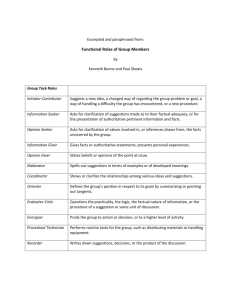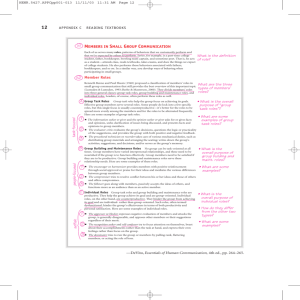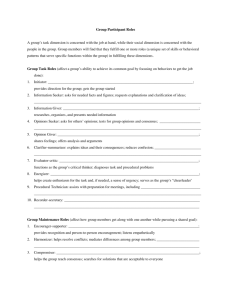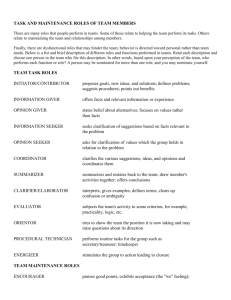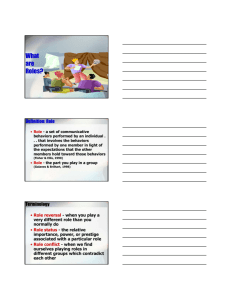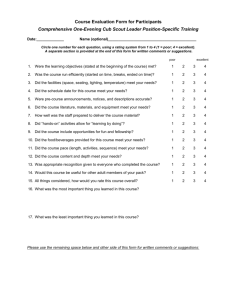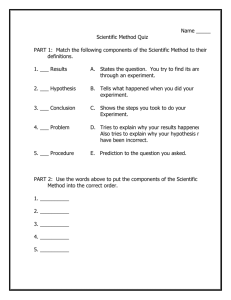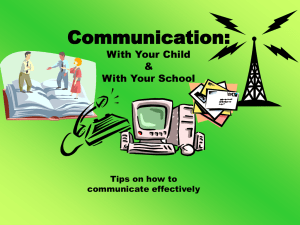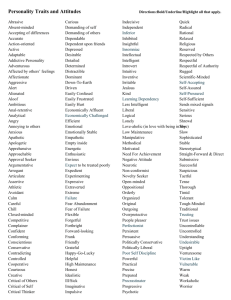Functional Group Roles
advertisement
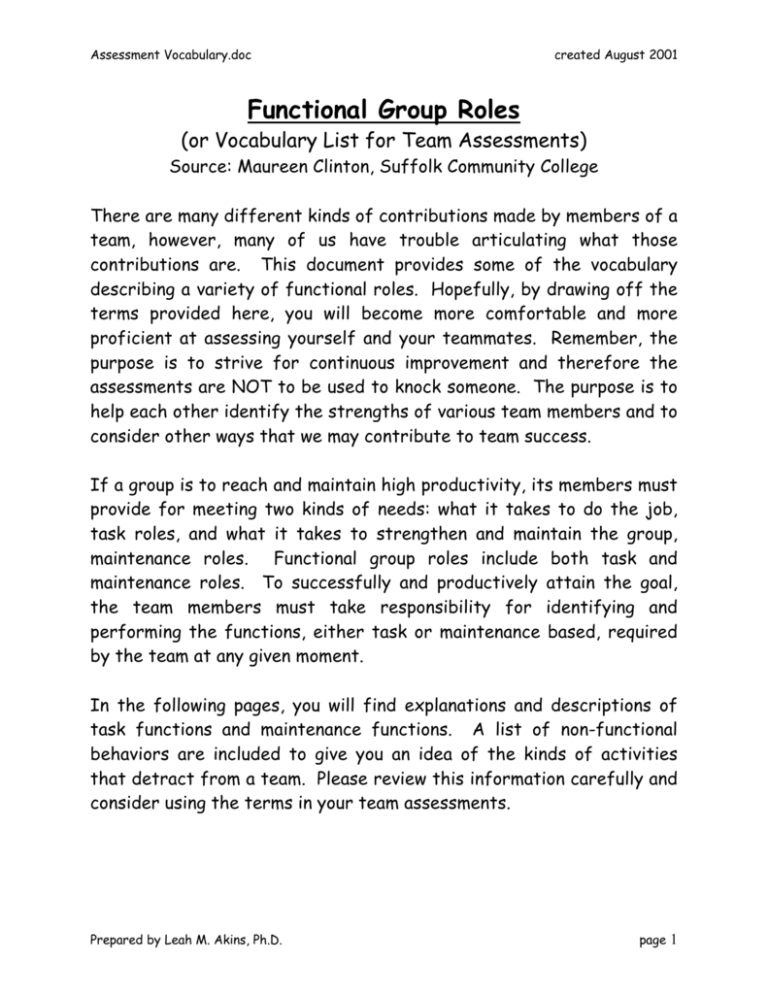
Assessment Vocabulary.doc created August 2001 Functional Group Roles (or Vocabulary List for Team Assessments) Source: Maureen Clinton, Suffolk Community College There are many different kinds of contributions made by members of a team, however, many of us have trouble articulating what those contributions are. This document provides some of the vocabulary describing a variety of functional roles. Hopefully, by drawing off the terms provided here, you will become more comfortable and more proficient at assessing yourself and your teammates. Remember, the purpose is to strive for continuous improvement and therefore the assessments are NOT to be used to knock someone. The purpose is to help each other identify the strengths of various team members and to consider other ways that we may contribute to team success. If a group is to reach and maintain high productivity, its members must provide for meeting two kinds of needs: what it takes to do the job, task roles, and what it takes to strengthen and maintain the group, maintenance roles. Functional group roles include both task and maintenance roles. To successfully and productively attain the goal, the team members must take responsibility for identifying and performing the functions, either task or maintenance based, required by the team at any given moment. In the following pages, you will find explanations and descriptions of task functions and maintenance functions. A list of non-functional behaviors are included to give you an idea of the kinds of activities that detract from a team. Please review this information carefully and consider using the terms in your team assessments. Prepared by Leah M. Akins, Ph.D. page 1 Assessment Vocabulary.doc created August 2001 Task Functions 1. Information Seeker – seeks facts/date relevant to the task 2. Opinion Seeker – seeks clarification of values, suggestions, ideas, and points of view 3. Information Giver – offers facts, generalizations or relating one’s own experience relevant to the group’s task to illustrate points 4. Opinion Giver – states opinion, belief, value or point of view relevant to the task 5. Initiator – proposes solutions; suggests new ideas, new definitions of the task, new attacks on problems or new organization of material 6. Elaborator or Clarifier – clarifies, gives examples or develops meaning, tries to envision how a proposal might work out if adopted 7. Coordinator – shows relationships among various ideas or suggestions, tries to pull ideas and suggestions together, tries to draw together activities of various sub groups or members 8. Summarizer – pulls together related ideas or suggestions, restates suggestions after the group has discussed them, offers a decision or conclusion for the group 9. Orienter – brings group members back to the task when they get off track 10. Consensus Tester – tentatively asks group opinion to find out if the group is nearing consensus on a decision, send up trial balloons to test group opinions 11. Diagnostician – determines the sources of difficulties, the main block to progress and appropriate steps to take next 12. Secretary (Recorder) – takes minutes or notes, writes reports, serves as the “group memory” 13. Energizer – raises the level of enthusiasm for the group’s work 14. Evaluator/Critic – analyzes or causes the group to analyze its accomplishments according to some set of standards without causing the group members to feel threatened, measures accomplishments against goals Prepared by Leah M. Akins, Ph.D. page 2 Assessment Vocabulary.doc created August 2001 Maintenance Functions 1. Gatekeeper – tries to make it possible for another member to make a contribution (for example, by saying: “We haven’t heard from Jim yet” or by suggesting limiting talk time so that all will have a chance to be heard), keeps communication channels open 2. Encourager/Supporter – accepts contributions of others, is responsive to others’ ideas, or builds upon the ideas of others 3. Mediator/Harmonizer – harmonizes difference in points of view, helps the group manage conflict 4. Tension Releaser – drains off negative feeling by jesting or putting a tense situation in wider context 5. Empathy Expresser – expresses your understanding of what another member may be feeling 6. Feeling Expresser – describes one’s own honest reactions/feelings with respect to the situation as well as articulates the group’s feelings 7. Feelings Acceptor – maintains the group’s awareness that a member’s expressed feelings are neither good nor bad but a reality of life to be acknowledged 8. Compromiser – offers to compromise when it is clearly necessary for group progress 9. Standard Setter – suggest standards for the group to achieve and challenges unproductive behaviors 10. Follower – goes along with the movement of the group, listens attentively, accepts the ideas of the group and serves as an audience in the group discussion and decision Non-Functional Behavior List (Clarification of these terms can be obtained from your instructor.) Aggressor Dominator Blocker Self-Confessor Competitor Sympathy Seeker Special Interest Pleader Clowning Around Recognition Seeker Withdrawer Deserter Prepared by Leah M. Akins, Ph.D. page 3
